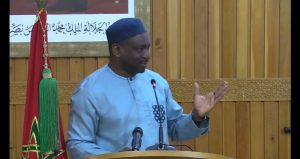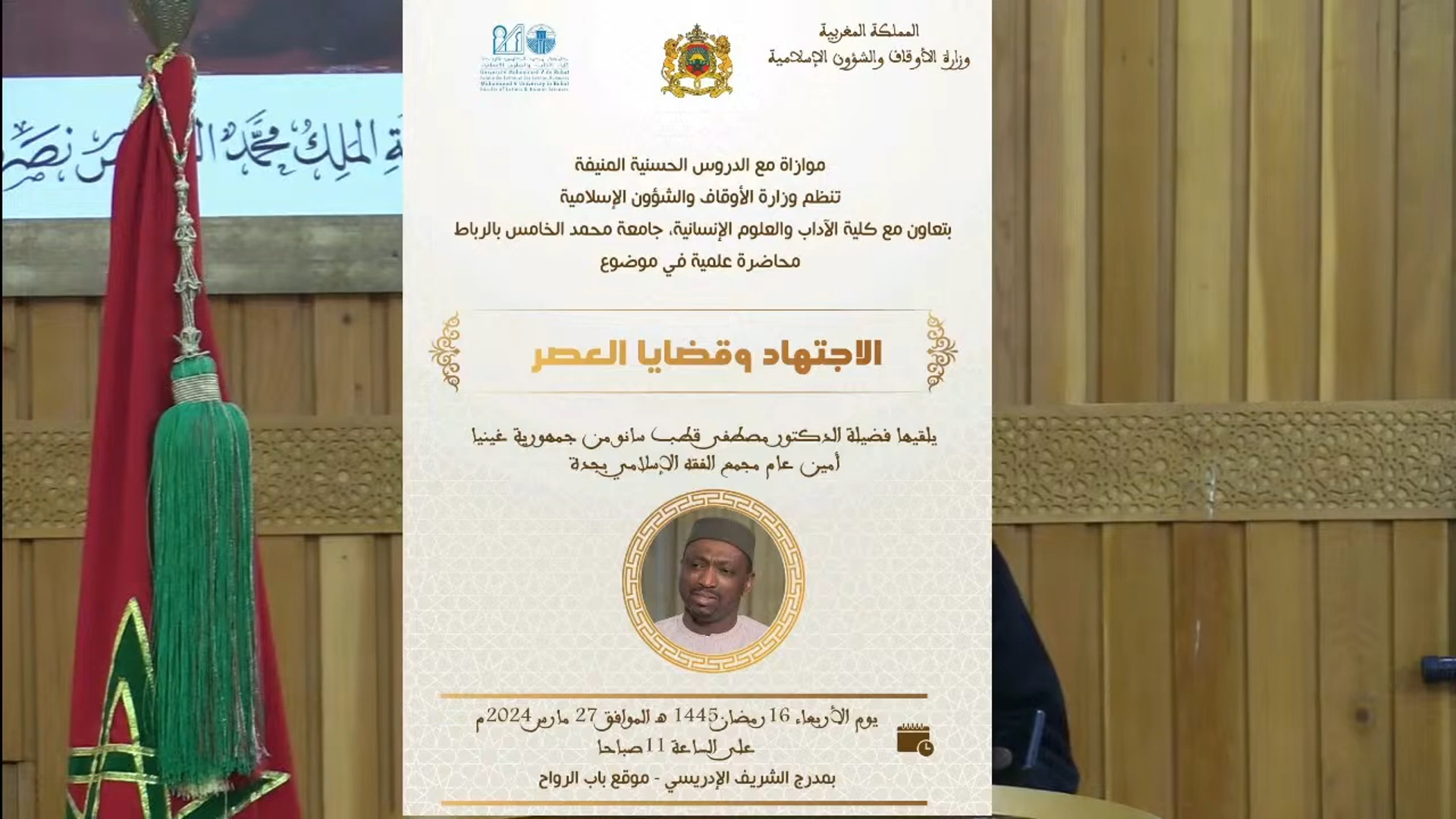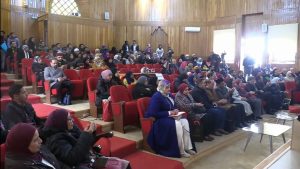
Under the auspices of the Moroccan Ministry of Awqaf and Islamic Affairs, H.E. Prof. Koutoub Moustapha Sano, Secretary General of the Academy, delivered a lecture on Wednesday, 17 Ramadan 1445 AH, corresponding to 27 March 2024, entitled Ijtihad and the Issues of the Age at the Faculty of Arts and Humanities, Mohammed V University in Rabat.
His Excellency thanked the university’s dean for inviting him to deliver this lecture to the faculty and students. He praised the long intellectual and scientific legacy of this prestigious university, which represents a reference point for Islamic thought and knowledge, a ray of light, and a symbol of knowledge and thoughtfulness in the Kingdom of Morocco.
His Excellency spoke about the importance of “reason and transmission” in Islamic thought and its role in Ijtihad: “Islamic thought was plagued in an early period of its history by an artificial conflict between the reason and the transmission, and the sound mind and the correct transmission were not intended to conflict and contradict. The appropriate transmission cannot oppose the sound mind, and the right mind cannot oppose or contradict the right transmission, especially since it is known that transmission needs more reason. The need for transmission to the mind is actually greater than the need of the mind to the transmission, considering that transmission needs to be understood, conveyed, and disseminated. All this can only be achieved through a sound and sober mind, which means that any alleged conflict between mind and transmission must be between an incorrect text and a sound mind or between a correct transmission and an unsound mind.”

His Excellency said: “Looking at the reality of the Ummah, we find that at the beginning of the fourth century of the hegira, it was the beginning of the civilizational degradation of the Ummah because it stopped generating science, so the need arose to talk about Maqasid when the Islamic existence was threatened by the invasion of the Mongols and the fall of Baghdad, so the scholars in this period urged the importance of linking the ruling to its purpose and the importance of paying attention and adhering to Maqasid because Sharia rulings must be presented to Maqasid before accepting or rejecting them.”
Additionally, His Excellency also called to pay more attention to the human sciences and for the mujtahid to have knowledge and familiarity with their principles so that he can tightly connect and balance between the contents of the different texts, the requirements of reality and human conditions, and to enable him to know the multiple aspects of the human being and his various issues, which practice Ijtihad through a Maqasid-oriented approach which is also realistic, and rational and serves Maqasid at the same time.
Accordingly, His Excellency called for the need to move from theoretical Ijtihad to the practical side by working on developing curricula that include a mature formulation of the essential tools and knowledge that person in question must master before becoming qualified to practice Ijtihad with confidence and stability, avoiding the fear and apprehension of Ijtihad while meeting its conditions and mastering its sciences and instruments.
At the end of the lecture, His Excellency called for the continued integration of Islamic studies and humanities, explaining that any claim of conflict and contradiction between reason and transmission can only come from a flaw in reason by leaving the boundaries set for it by Sharia, which is the boundary of implicit or doubtful texts, or a flaw in transmission by being weak or objective. Hence, this cannot be attributed to Sharia.
Read Also
Lastest









